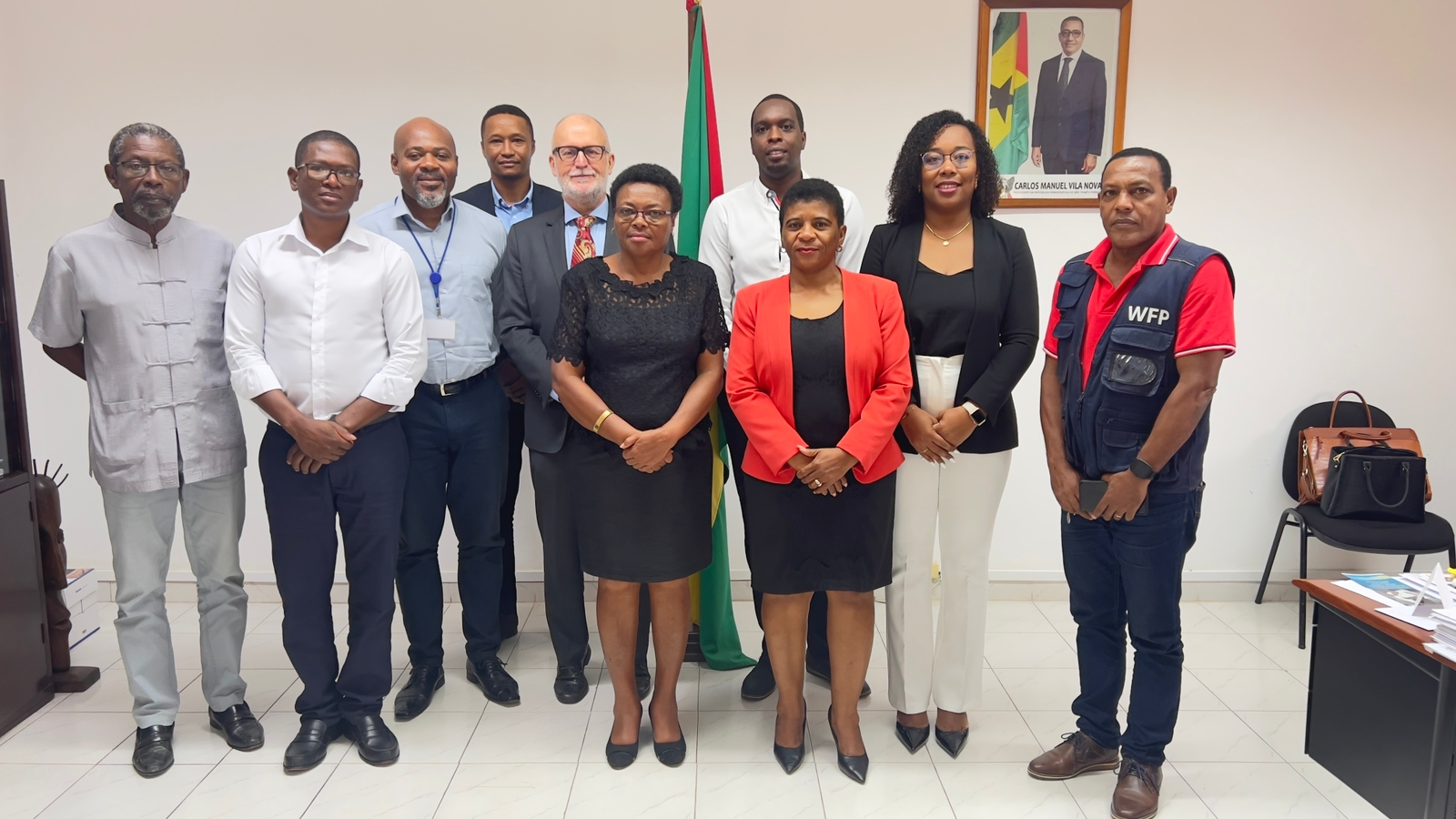 The United Nations World Food Programme (WFP), through the Centre of Excellence against Hunger, has received a US$100,000 donation from the Brazilian government, through the Brazilian Cooperation Agency (ABC), for the purchase and distribution of local, organic and natural products in schools in the districts most affected by the floods that devastated São Tomé and Príncipe in late 2021 and in 2022. The initiative will last for five and a half months and will focus on the inclusion of organic food and in school meals, allowing school menus to be more nutritious and healthier for children.
The United Nations World Food Programme (WFP), through the Centre of Excellence against Hunger, has received a US$100,000 donation from the Brazilian government, through the Brazilian Cooperation Agency (ABC), for the purchase and distribution of local, organic and natural products in schools in the districts most affected by the floods that devastated São Tomé and Príncipe in late 2021 and in 2022. The initiative will last for five and a half months and will focus on the inclusion of organic food and in school meals, allowing school menus to be more nutritious and healthier for children.
The project will benefit some schools in the districts of Lembá, Cantagalo, Mé-zochi and Lobata and is expected to have a direct impact on the lives and nutrition of thousands of school children. The proposal will also benefit local farmers, in addition to encouraging the planting of organic food, since small producers in the selected districts will provide food without the use of chemicals or artificial fertilisers for the project.
“The Brazilian Government, the Santomean Government and the WFP, in common agreement, decided to direct the fund to the purchase of organic and natural products to be distributed in the schools of the most affected districts. This is an initiative that will allow school menus to include more local, organic, fresh and healthier products for children, while stimulating the production of these foods and benefiting small producers,” said Edna Peres, in charge of the WFP São Tomé and Príncipe Office.
The National School Food and Health Programme (PNASE, in portuguese) directly benefits over 50,000 children, which corresponds to a quarter of the São Toméan population. Recent studies show that investing in the consumption of local products in school meals can support the development of local agriculture and promote healthier diets while improving health, nutrition and education in the most vulnerable communities. Due to the rising costs of imported products, the Government of São Tomé has encouraged local production in order to provide adequate healthy food to prevent malnutrition in school children.
The intervention is part of the World Food Programme’s humanitarian and development assistance in the country and through it, WFP aims to strengthen the resilience of vulnerable populations to natural disasters and food crises by restoring their livelihoods.
The United Nations World Food Programme (WFP) is the world’s largest humanitarian agency, saving lives in emergencies and providing food assistance, contributing to peace, stability and prosperity for people recovering from conflict, disaster and the impact of climate change.
The United Nations World Food Programme (WFP), through the Centre of Excellence against Hunger, has received a US$100,000 donation from the Brazilian government, through the Brazilian Cooperation Agency (ABC), for the purchase and distribution of local, organic and natural products in schools in the districts most affected by the floods that devastated São Tomé and Príncipe in late 2021 and in 2022. The initiative will last for five and a half months and will focus on the inclusion of organic food and in school meals, allowing school menus to be more nutritious and healthier for children.
The project will benefit some schools in the districts of Lembá, Cantagalo, Mé-zochi and Lobata and is expected to have a direct impact on the lives and nutrition of thousands of school children. The proposal will also benefit local farmers, in addition to encouraging the planting of organic food, since small producers in the selected districts will provide food without the use of chemicals or artificial fertilisers for the project.
“The Brazilian Government, the Santomean Government and the WFP, in common agreement, decided to direct the fund to the purchase of organic and natural products to be distributed in the schools of the most affected districts. This is an initiative that will allow school menus to include more local, organic, fresh and healthier products for children, while stimulating the production of these foods and benefiting small producers,” said Edna Peres, in charge of the WFP São Tomé and Príncipe Office.
The National School Food and Health Programme (PNASE, in portuguese) directly benefits over 50,000 children, which corresponds to a quarter of the São Toméan population. Recent studies show that investing in the consumption of local products in school meals can support the development of local agriculture and promote healthier diets while improving health, nutrition and education in the most vulnerable communities. Due to the rising costs of imported products, the Government of São Tomé has encouraged local production in order to provide adequate healthy food to prevent malnutrition in school children.
The intervention is part of the World Food Programme’s humanitarian and development assistance in the country and through it, WFP aims to strengthen the resilience of vulnerable populations to natural disasters and food crises by restoring their livelihoods.
The United Nations World Food Programme (WFP) is the world’s largest humanitarian agency, saving lives in emergencies and providing food assistance, contributing to peace, stability and prosperity for people recovering from conflict, disaster and the impact of climate change.




